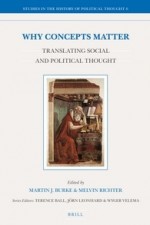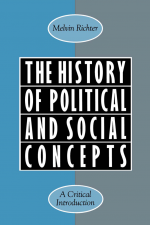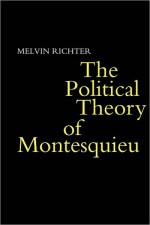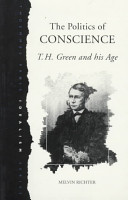1) “Sun Yat Sen’s Doctrine of Min Ch’uan” in Papers on China 1 (Cambridge, Mass., Committee on International and Regional Studies, Harvard University, 1947), pp. 136-74.
2) “T. H. Green and his Audience,” in Review of Politics,18 (1956), pp. 444-72.
3)”The Historical Approach to the Study of International Politics, in Approaches and Concepts in International Politics, ed. V. Van Dyke, (Iowa City: State Univ. of Iowa,
1957), pp. 6-15.
4) “A Debate on Race: the Tocqueville-Gobineau Correspondence,” in Commentary 25 (1958), pp. 151-60.
5) “Der Begriff der Rasse,” in Der Monat 11 (1958), pp. 33-46.
6) “Tocqueville on Algeria,” in Review of Politics, 25 (1963), pp. 32-98.
7) Review-Essay on Robert Shackleton, Montesquieu, in History and Theory 3 (1963),
pp. 14-22.
8) “Intellectual and Class Alienation: Oxford Idealist Diagnoses and Prescriptions,” in European Journal of Sociology, 6 (1966), pp. 1-26.
9) “A Bibliography of Signed Works by Élie Halévy,” in History and Theory. Beiheft 7 (1968), pp. 46-70. Reprinted in Élie Halévy, La formation du radicalisme philosophique, ed.
Monique Canto-Sperber, (2nd ed., 3 vols. (Paris, 1995).
10) “Comparative Political Analysis in Montesquieu and Tocqueville,” in Comparative
Politics 1 (1969), pp. 129-60.
11) “An Introduction to Montesquieu’s Essay on Causes,” in Political Theory, (1976), pp. 132-38.
12) Montesquieu, “An Essay on the Causes that may Affect Men’s Minds and Characters,” translated and annotated by Melvin Richter, in Political Theory, 4 (1976), pp. 139-62.
13) “Toward a Concept of Political Illegitimacy, in Political Theory, 10, (1982), pp. 185-214.
14) “Raymond Aron as Political Theorist,” in Political Theory, 12 (1984), pp. 147-51.
15) “Conceptual History (Begriffsgeschichte) and Political Theory,” in Political Theory, 14 (1986): pp. 604-37.
16) Begrifffsgeschichte and the History of Ideas, in Journal of the History of Ideas, 48 (1987), pp. 247-63. Finnish translation, with preface by Kari Palonen, Politikka XXXI (1989), 76-87.
17) “Montesquieu, the Politics of Language, and the Language of Politics, in Historv of Political Thought X (1989), pp. 71-88)
18) “Understanding Begriffsgeschichte: A Rejoinder, in Political Theory, 17 (1989), pp. 296-301.
19)”Pocock, Skinner, and the Geschichtliche Grundbegriffe,” in History and Theory, XIX (1990), pp. 38-70. Revised version of “Zur Rekonstruktion der Geschichte der Politischen Sprachen.”
20) “Aristotle and the Classical Greek Concept of Despotism,” in History of European Ideas, 12 (1990), pp. 175-187.
21) “Opening a Dialogue and Recognizing an Achievement,” in Archiv für Begriffsgeschichte, 39 (1996), pp. 19-26.
22) “Selbstanzeigen: The History of Political and Social Concepts: A Critical Introduction,” in Archiv für Begriffsgeschichte, 39 (1996), pp. 19-26.
23) “Étude Critique, Élie Halévy,” [Review-Essay, Correspondence d’Élie Halévy and Élie Halévy, La formation du radicalisme philosophique] in Revue de Métaphysique et de Morale, (1997): pp. 271-93.
24) “Montesquieu and the Concept of Civil Society,” The European Legacy 3 (1998), pp. 33-41. Japanese translation in Shiso, Tokyo, Japan (1998): pp.106-117.
25) “A Response to Comments in a Symposium on M. Richter, The History of Political and Social Concepts: A Critical Introduction,” in History of European Ideas 25 (1999), pp. 31-37.
26) “Conceptualizing the Contestable: Begriffsgeschichte and Political Concepts,” in Archiv für Begriffsgeschichte. Sonderheft Jahrgang 2000, pp. 135-43.
27) “Two Eighteenth-Century Senses of ‘Comparison’ in Locke and Montesquieu,” Jahrbuch für Recht und Ethik 8 (2000), pp. 1-22.
28) “Montesquieu’s Theory and Practice of the Comparative Method,” in History of the Human Sciences 15 (2002), pp. 21-33.
29) “The Deposition of Alexis de Tocqueville?,” in La Revue Tocqueville/The Tocqueville Review XXIII (2002), pp. 173-99.
30) “That Vast Tribe of Ideas: Competing Concepts and Practices of Comparison in Eighteenth-Century Europe,” in Archiv für Begriffsgeschichte Band 44 (2002),
pp. 199-219.
31) “Comments on the Mansfield-Winthrop Translation of Alexis de Tocqueville, De la Démocratie en Amérique,” in French Politics, Culture Society 21 (2003), pp. 119-29.
32) “Le concept de despotisme et l’Abus des mots,” in Dix-huitième Siècle 34 (2002), pp. 373-88.
33) Essay-Review of Mario Turchetti, Tyrannie et Tyrannicide de l’Antiquité à nos jours, in History of Political Thought XXIV (2003), pp.537-41.
34) “A Lexicon of European Political and Legal Concepts: A Comparison of Begriffsgeschichte and the ‘Cambridge School,’ ” in Critical Review of Social and
Political Philosophy 6 (2003), pp. 91-120.
35) Guizot and Tocqueville on Democracy: From a Type of Society to a Political Regime,” in History of European Ideas 30 (2004), pp. 61-82.
36) “Asigando a la Begriffsgeschichte su lugar en la Historiografía del pensiamiento politico,” in Historiografía del pensiamiento politico 27 (2003), pp. 455-463.
37) “More than a Two-way Traffic: Analyzing, Translating, and Comparing Political Concepts from Other Cultures,” in Contributions to the History of Concepts, 1 (2005), pp. 7-19.
38) “A family of political concepts: tyranny, despotism, Bonapartism, Caesarism, dictatorship, 1750-1917,” European Journal of Political Theory 4 (2005), pp. 221-48.
39) “Tocqueville’s Brief Encounter with Machiavelli: Reflections on the Florentine Histories (1836),” in History of Political Thought XXVI (2005), pp. 1-17.
40) Essay-Review of Oeuvres de Tocqueville, edition Pléiade tome III, François Furet and Françoise Mélonio, eds, in La Revue Tocquevile/The Tocqueville Review. XXVI (2005), pp. 1-17.
41) “Introduction to Reinhart Koselleck’s ‘Krise’ in Geschichtliche Grundbegriffe” (with Michaela W. Richter). in Journal of the History of Ideas, 47 (2006), pp. 343-56.
42) “The Concept of Despotism and l’abus des mots,” in Contributions to the History of Concepts 3(2007), pp. 5-22. Revised version in English of (32).



